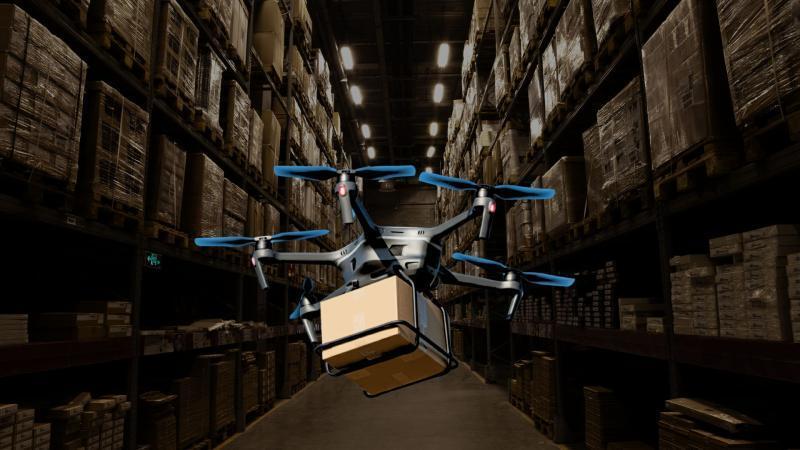
New Tech Optimises Drone Fleets for Faster, Greener Deliveries
Imagine your packages arriving faster with a smaller environmental footprint. With the rapid growth of e-commerce, the last-mile delivery problem has become a significant challenge for logistics companies. Traditional delivery methods, such as trucks and vans, can be inefficient and contribute to congestion, pollution, and traffic jams. Drones, with their ability to fly quickly and directly to their destinations, offer a promising solution. However, managing a fleet of drones, known as the “Drone Warehouse Problem,” has been a major hurdle in scaling up drone delivery services.
Researchers from various institutions have been working to address this challenge, and a recent breakthrough has the potential to revolutionize the industry. A novel algorithm has been developed to optimize drone delivery schedules, enabling warehouses to efficiently manage varied drone fleets and ensure parcels reach customers quickly.
The Drone Warehouse Problem
The Drone Warehouse Problem arises from the need to coordinate multiple drones, each with its own unique characteristics, to deliver packages to a wide range of destinations. The problem is complex because it involves:
- Multiple drone types, each with different speeds, capacities, and routes.
- Variable demand, with packages of varying sizes and weights.
- Time-critical deliveries, requiring packages to arrive at specific times.
- Safety constraints, ensuring drones operate within designated airspaces and avoid collisions.
The Novel Algorithm
The research team, led by Dr. [Name], developed an algorithm that addresses the Drone Warehouse Problem by:
- Classifying drones into different categories based on their performance, capacity, and route characteristics.
- Creating a dynamic scheduling system that takes into account real-time demand, weather conditions, and air traffic control restrictions.
- Optimizing drone routes to minimize travel time, reduce fuel consumption, and avoid congestion.
- Ensuring safe and efficient delivery by incorporating collision avoidance and emergency response protocols.
The algorithm, which can be integrated with existing logistics management systems, uses machine learning and optimization techniques to continuously adjust and refine the drone delivery schedules. This ensures that the most efficient drones are assigned to each task, maximizing delivery speed and minimizing environmental impact.
Benefits of the New Algorithm
The novel algorithm offers several benefits to the logistics industry, including:
- Faster Delivery: By optimizing drone routes and schedules, packages can be delivered faster, reducing the overall delivery time and increasing customer satisfaction.
- Greener Deliveries: By reducing fuel consumption and emissions, the algorithm contributes to a smaller environmental footprint, aligning with the growing demand for sustainable logistics solutions.
- Increased Efficiency: The algorithm’s ability to manage variable demand and adjust to real-time conditions enables warehouses to optimize their operations, reducing costs and improving productivity.
- Improved Safety: The algorithm’s safety features, such as collision avoidance and emergency response protocols, ensure that drones operate safely and efficiently, reducing the risk of accidents and damage.
Scalable and Sustainable Last-Mile Delivery Solutions
The new algorithm has the potential to transform the last-mile delivery landscape, enabling logistics companies to scale up their drone delivery services while reducing their environmental impact. As the demand for fast and sustainable delivery solutions continues to grow, this technology can play a crucial role in shaping the future of logistics.
Conclusion
The novel algorithm developed by researchers is a significant breakthrough in addressing the Drone Warehouse Problem, a crucial challenge in optimizing drone fleets for faster, greener deliveries. With its ability to manage variable demand, optimize drone routes, and ensure safe and efficient delivery, this technology has the potential to revolutionize the logistics industry. As the demand for sustainable and efficient delivery solutions continues to grow, this innovative algorithm is poised to play a vital role in shaping the future of last-mile delivery.
Source:
https://researchmatters.in/news/novel-algorithm-tackles-drone-warehouse-problem-faster-deliveries






